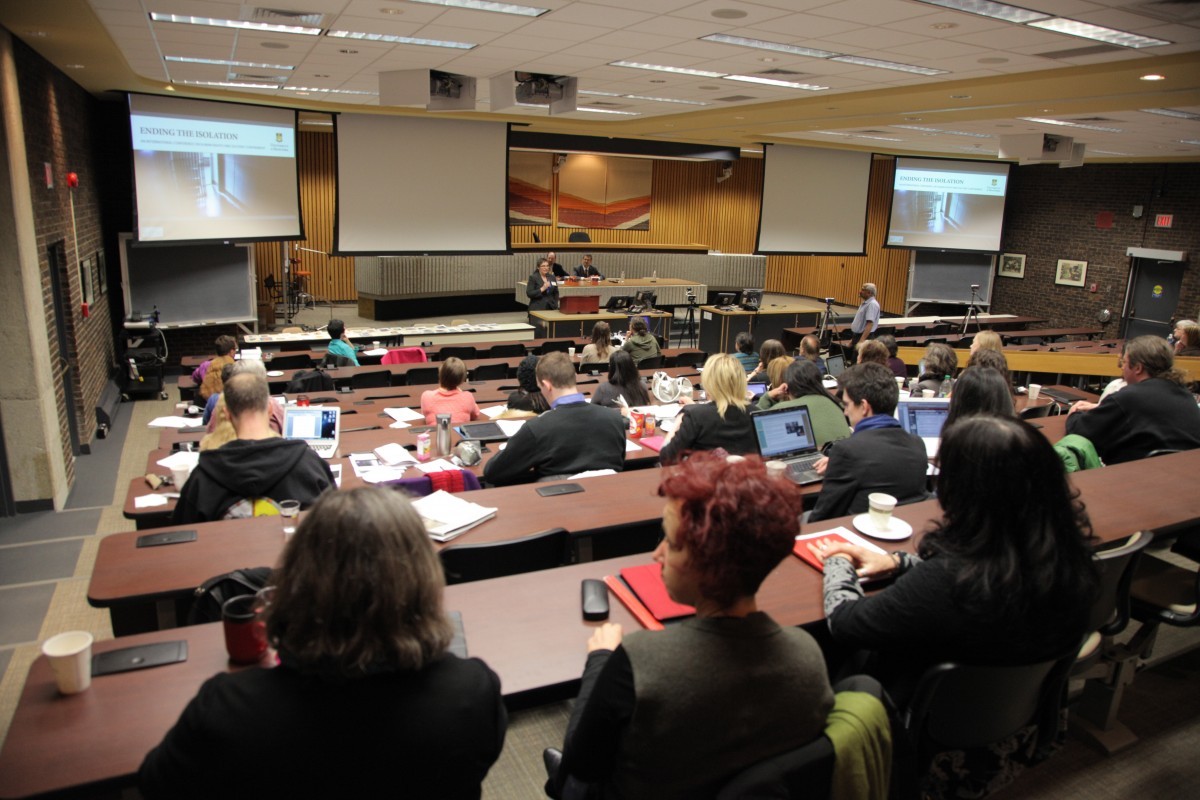
In 2013, the U of M hosted ‘Ending the Isolation: An International Conference on Human Rights and Solitary Confinement.’
Exploring imprisonment: Giving a voice to those whose voices are silenced
WHO: Debra Parkes, associate professor and associate dean in the Faculty of Law.
WHAT: Parkes works to protect the rights of some of society’s most vulnerable members—prisoners. She has volunteered as a board member with the provincial and national Elizabeth Fry Societies, leading their human rights initiatives, and helping to develop a manual for women prisoners explaining their rights. Along with colleague David Milward and a couple of students, Parkes developed a handbook for people working in the court system with practical information on how to apply the Gladue principles (Gladue was a Supreme Court decision which said that judges must pay closer attention to the individual circumstances of Aboriginal offenders and consider alternatives to incarceration). In 2013, Parkes organized an international conference on human rights and solitary confinement at the U of M which featured presentations by the UN Special Rapporteur on Torture and Other Cruel, Inhumane and Degrading Treatment and additional Canadian and international experts.
WHY IT MATTERS: “It’s trite for me to say that respecting human rights is good for everyone but the research shows it’s true,” says Parkes. “If prisoners are treated with dignity it makes prisons safer for everyone, including staff, and it better equips prisoners for their eventual release.”
THE IMPACT: “We have known for years that people who end up in prisons are often victims of a variety of social circumstances, including poverty, abuse, discrimination, mental illness and substance abuse. Adequately resourced community justice programs are far more effective than incarceration for many people. Warehousing people in jails is costly—there are compelling economic and social reasons to re-evaluate our current approach,” says Parkes.
FUNDERS: Social Sciences and Humanities Council of Canada; Legal Research Institute of Manitoba; Social Justice and Human Rights Research Project, Faculty of Law, University of Manitoba
LEARN MORE






